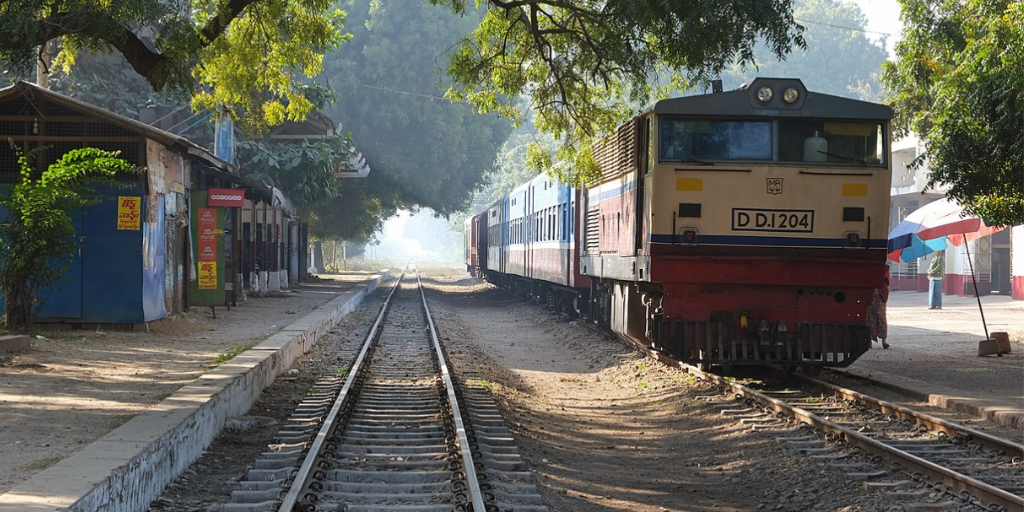
As the second anniversary of the military coup in Burma* approaches, Paul Knipe speaks to a prominent civil society leader and activist, Ko X*, now living in exile with his family in Europe. They discuss what the conflict means for civil society organisations in Burma, and what international CSOs can do to support them.
Nearly two years ago, in February 2021 following accusations of rigged elections, the military (known as the Tatmadaw) overthrew the National League for Democracy-led government in a coup that lasted a matter of days. The subsequent violence, demonstrations and detentions continue with no sign of a resolution or of promised national elections. In the face of ongoing resistance, fighting has escalated. Attacks on civilians and communities have increased, fueling a cycle of violence and inter-ethnic conflict.
Civil society is strong in Burma. CSOs and activists worked for decades under oppressive military rule following the military coup of 1962. Amid the current conflict, the situation is sadly familiar. CSOs have continued to operate in the country, for example providing financial and subsistence support to internally displaced people (IDP) and communities. CSOs quickly rallied when the coup happened, issuing an open letter to the UN security council with 177 signatories. Joint statements have continued, with the number of signatories rising to more than 630, the majority of whom are national and local CSOs in the country or in exile.
There are restrictions on freedom of association and liberal values. This will only increase with the new civil society law.
Ko X
But there have inevitably been changes. “We have some colleagues and small groups that are still operational in Burma. Those providing humanitarian assistance, education, and technical vocational training”, says Ko X. Whereas those focused on more sensitive topics of democracy and human rights have largely moved underground – working in exile “back on the border with Thailand or overseas”. Across the board there are restrictions on civil society freedoms and space to engage, advocate, and lobby; there are legislative, technical, and logistical challenges for operation. “There are restrictions on freedom of association and liberal values. This will only increase with the new civil society law”, explains Ko X. The new Registration Law from the State Administration Council is set to violate freedom of association by mandating registration, enforcing criminal penalties, and severely restricting civil society activities.
Civil society faces communications challenges, with the Tatmadaw blocking access to the Internet in some states and regions, and difficulties with travel. Financial transactions are extremely difficult. “Many CSOs don’t have registration and legal documents. Sometimes the process is rigged, and the junta finds connections with revolutionary groups. CSOs cannot use foreign banks, there are no transactions, and they don’t trust the military-run banking system. This is a challenge and affects how CSOs can receive funds especially from foreign donors”.
“Civil society in Burma is changing structurally and morally,” Ko X adds. “We have experience of working under the military junta, underground in the past, with different ways of running NGOs. Structurally we have changed – now we start working with networks, through connections. Now our organization management is nearly flat. ‘Top down’ management structures are going. Ideologically civil society is changing. Previously we tried to be neutral. We participated in the transition, when we engaged with political parties – we remained neutral. This time there’s no neutral space for civil society. Most CSOs chose revolution. We believed in non-violence, now we are fighting.”
CSOs in Burma have repeatedly called for UN and donors to not work with, fund, or form memorandums of understanding (MoUs) with the military, adding strength to their claims for legitimacy. Instead, CSOs have stated that the international community should recognize and work with the National Unity Government and Ethnic Revolutionary Organizations. It should promote and support localized responses to humanitarian crises and development.
So, what can international CSOs do? “Some organisations are supporting local work through informal money transactions. Through connections and networks, we can share information and support”, says Ko X. “International CSOs can be involved in international campaigns against the military rule. They can lobby and advocate for Burma civil society. Another way is to focus support for vulnerable people and communities that have fled, are in IDP camps, where a million suffer. By providing aid, education, health care and other support.”
*Note: the use of ‘Burma’ or ‘Myanmar’ is a sensitive issue. Burma has been used here on the advice of Ko X.
*Name changed for safety purposes